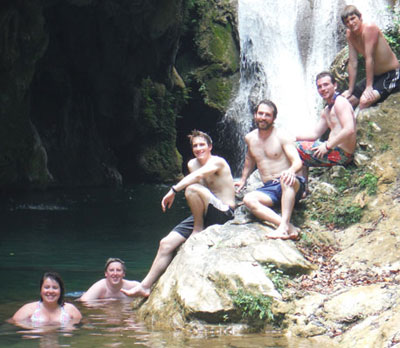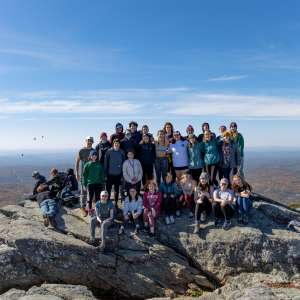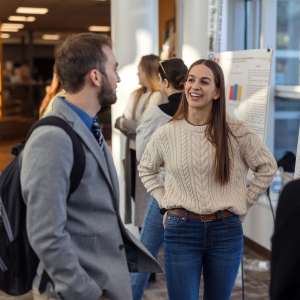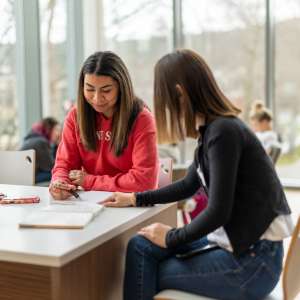Honors Students Visit Cuba

Six students in the Honors Program traveled to Cuba recently as part of their Global Engagement requirement. The trip—led by retired Political Science Professor Chuck Weed and his son, Tim, who has taught writing at KSC—began in Havana and took in several towns and sites, including the Bay of Pigs, Trinidad (a beautifully preserved colonial city), museums, factories, and a national park. Each student worked on a chosen research topic in Cuba, which included primary and secondary education, the health delivery system, sports as a unifier, the genres of Cuban music, sites and memories of mafiosa in pre-revolution Cuba, and organic agriculture. As Dr. Weed explained, the trip “was certainly varied enough to give more than a surface introduction to a complex country and its citizens.”
“Cuba was an amazing, and welcome surprise,” reported student Michael Kolodziej. “The stand-out aspect of the whole thing was the combination of in-class learning followed so closely, temporally and topically, by this emersion-type trip. It really enriched the travel experience beyond what I had hoped. Now I’m working on an essay on the Cuban health care system.”
One of the students, Sean Millikan, went to study organic agriculture and visited an organoponico (organic farm). He learned a lot there, but his most lasting impression from the trip was outside his research area. “What I have learned … from the trip is that happiness isn’t what you have but rather the people that are around you and, more importantly, your family,” he recalled. “The Cuban people are among the most friendly and open people I have ever met, and I believe that the majority of US citizens have the wrong impression of Cuba, based on what is taught in US history classes.”
Prof. Weed also believes that the trip changed the students preconceptions of Cuba. He felt that, prior to the visit, the students had a somewhat negative view of Cuba as a communist dictatorship. However, their experiences with Cuban culture and its people dramatically changed their opinions. “I have seen three evaluations that expressed a superlative appreciation of this international experience,” Dr. Weed related. After they’d experienced the real Cuba, the students were very disappointed with the negative way the country is usually presented in America.
At times during the trip, the students were paired up with an “amigo,” a Cuban student who is studying English and helped the visitors with their research projects. That went a long way towards benefiting both sides in the relationship and further enhancing Cuban/American relations.
As Sean Millikan said after the experience, “I believe that I speak for everyone when I say that we have to go back!”





